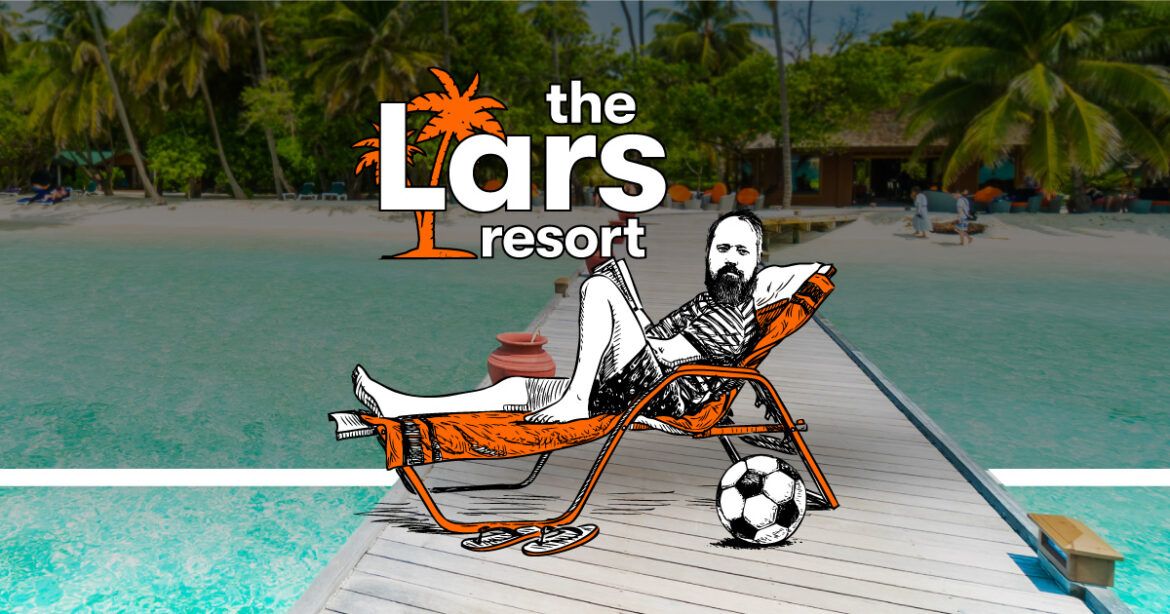Loveless marriage should prompt Spurs re-think
Big name managers who’d rather be somewhere else are not going to lead Tottenham to the promised land, says Betsson expert Lars Sivertsen.
By Lars Sivertsen, Football Expert for Betsson
The 3-1 win over a hopeless Nottingham Forest outfit this weekend means Tottenham Hotspur Football Club have somehow stumbled back into a very good position in race for the last Champions League spot. This is a deeply odd state of affairs, most of all because they’ve lost a third of their games in the Premier League this season, but also because of the general sense of apathy that has set in on the terraces at the very shiny Tottenham Hotspur Stadium. For so many years Champions League qualification seemed like an impenetrable glass ceiling for Spurs, yet here we are, with the team reasonably well placed to secure another lucrative year in Europe’s premier club tournament, yet most fans would agree that it’s been a poor season and that things are bad overall.
Things change
There are a number of entirely reasonable explanations for this, of course. The biggest one being that circumstances change. When Spurs spent so many years on the outside looking in, watching the then “big four” use the money and prestige of the Champions League to create a seemingly endless virtuous circle for themselves, the club and the fanbase had good reason to feel like getting into that top four would be the ultimate panacea. Once they got that money and that spotlight for themselves, unimagined success would surely follow. But six visits in a little over a decade, and even an appearance in the final of the tournament, has shown that it wasn’t quite that easy.
That isn’t to say that the progress made over that period hasn’t been important. If the 7th place finish in 2021 felt like a disaster for the club, Spurs fans may well want to bear in mind that between 1990 and 2005 7th was the highest league finish the club managed to register, and they managed it only once. You may not get a trophy for finishing fourth, but income from these semi-regular Champions League-appearances have allowed Spurs to spend more money on better players than before, which in turn has enabled them to win more games and finish higher in the league than before. And not to mention, it will have played no small part in convincing Harry Kane to spend the majority of his career at the club.
Better in than out
In the wake of Tottenham’s dreadful exit from this year’s Champions League against an eminently beatable Milan, a number of people mused “well, what is the point of getting the top four if you’re just going to lose like that?” To which the obvious answer is “well, try finishing outside of the top four for a few seasons, see what it does to your wage and transfer budgets, see how many of your top players still want to play for the club, see how many of your top transfer targets you’re able to attract, and then good luck getting back in or achieving anything at all”. Spurs fans, of all people, should know all too well what life on the outside is like. But while these semi-regular forays into the Champions League have no doubt helped elevate Tottenham’s position in the English football landscape, it hasn’t been a magical solution to everything. A gap between Spurs and the very wealthiest clubs in the country still exists – even if it’s gotten smaller. The new stadium will help, but the gap is still there and will continue to be there. Which means that while a lot has changed since the days of watching Timothee Atouba and Paul Stalteri at the old White Hart Lane, the fundamental task is still the same: Spurs still go into every season trying to find a way to take more points than clubs that have bigger resources at their disposal.
Starstruck
Which brings us to Tottenham’s last two serious managerial appointments (Sorry Nuno), Jose Mourinho and Antonio Conte. The logic of appointing both was easy enough to understand. In the case of Mourinho, it was clear from the All or Nothing-documentary that Daniel Levy was very impressed with him. Levy described him as one of the top two managers in the world, which may have been true at some point but by 2019 it was patently not true any more. But it’s not hard to empathize with Levy here or understand the appeal.
15 years earlier, when Spurs twice fell just short of the Champions League under Martin Jol’s tutelage, Levy will have looked on as Mourinho’s Chelsea disrupted the traditional elite and drove establishment figures such as Sir Alex Ferguson and Arsene Wenger slightly mad. Whatever the latter day Mourinho has become, he was clearly a force of nature in his pomp. It’s easy enough to appreciate that for Levy it must have been slightly exhilarating that the club was now in a position to appoint him. An element of wish fulfilment. The football chairman equivalent of turning up at a school reunion and discovering that you have a shot with the girl everyone used to fancy back in the day. In the aforementioned Amazon-documentary, the nard-nosed businessman Levy actually seemed rather starstruck. Antonio Conte for his part has an impressive record of improving teams and being successful in different circumstances, be that at Juventus, Chelsea, the Italian national team or Inter. He may be a notoriously demanding character to work with, but his record of improving teams through coaching is admirable. Neither Conte nor Mourinho had a history of building anything, of staying anywhere for very long, but they are big characters who have a proven record of providing short-term improvements and success.
A wrong turn
Maybe Levy thought that after he had taken Spurs so far, what was needed for the club to make the final push towards glory was a “proven winner”, a manager with a big shiny CV full of big shiny trinkets. Or perhaps it was short-termism born out of fear. As things eventually started to collapse towards the end under Pochettino, Levy must have worried that this could mean a return to life without Champions League money. Just as repeatedly qualifying for the Champions League can become a virtuous circle, but being outside of it will very quickly become a vicious one. So perhaps he hired big name, big money, big personality managers whose CVs seemingly guaranteed short term success – because that would mean clinging on in the top four for a little while longer. And whatever happens this season, it should not be forgotten that Conte did succeed in dragging Spurs into the Champions League last season in what was a hugely impressive feat of coaching.
Whatever the thinking was, one thing is clear: In turning to men like Mourinho and Conte, Levy has departed from the strategy that saw Spurs start punching above their weight to begin with. The Spurs team that finally managed to fully emerge from mid-table mediocrity was born out of an acceptance that if you can’t compete with the biggest clubs for the stars of today, you have to take a few bets on players who could become the stars of tomorrow. And to lead that group of young players they appointed an ambitious young coach with some fresh ideas, eager to take on the world. It is unlikely that Tottenham will ever be in a position to outspend the clubs they’re hoping to overtake, which means you’re going to have to be smarter. You have to take more risks, sign stars before they’re stars, accepting that for every Luka Modric there may be at least one David Bentley. You need to build something. You can’t really expect it to fall into place overnight, which makes hiring these explosive, short-termist managers an unlikely route to success. And if your goal is to upset the established order, it’s probably not a bad idea to try to appoint a coach whose methodology is ahead of the curve, rather than one whose best work is likely behind him.
Grumble grumble
With both Jose Mourinho and Antonio Conte, it’s been very hard to escape the sense that they’d both rather be somewhere else, and that they both accepted the inevitable restrictions of the club with great reluctance. Given their position, as a club just outside the elite that is hoping to punch upwards, being the Tottenham manager is never going to be an easy gig. But when investing in younger players who can develop is the clubs best bet to perform beyond their financial restrictions, perhaps they’d do well to target a head coach who is excited to work with and develop the talented young players the club can sign, rather than one who will grumble endlessly about what the club can’t do. As much as Tottenham are a club with some big challenges, they’re also a club with big opportunities.
With Antonio Conte’s departure this summer – if not before – looking almost certain, this should be a time for Tottenham’s leadership to have a re-think. Both Jose Mourinho and Antonio Conte’s reigns have descended into turgid football, underwhelming results, and an overwhelming sense of these being barren, loveless marriages. There is no sense in Tottenham hiring combustible, “win now” managers when they don’t have a squad that can win now, and don’t have the money to just go out and buy one.
Last updated: June 8th, 2023
Spurs climbed out of mediocrity by making several successful bets on young players, and pairing a youthful squad with an ambitious young coach with some fresh ideas. If they need a fresh reminder that this strategy can enable a team to punch above their financial weight, Spurs don’t have to look any further than across North London at the incredible season Arsenal are having. Whoever Spurs appoint to replace Conte this summer, it’s important that it’s someone who understands, accepts and actually wants the assignment. Big name, big money managers who’d rather be somewhere else are not going to lead Tottenham to the promised land.





